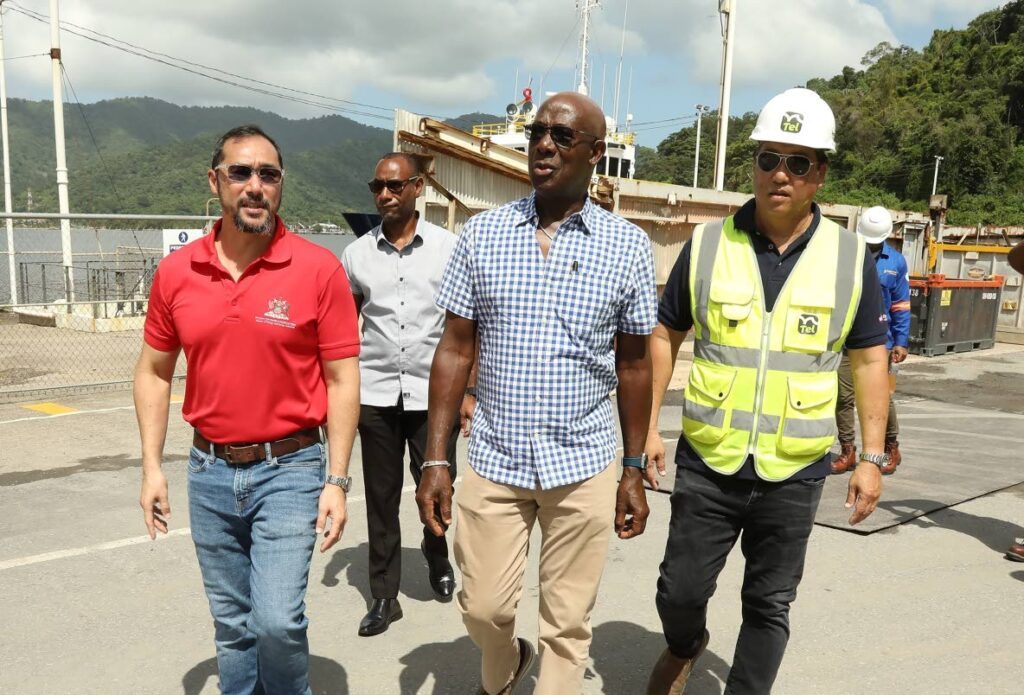Rowley’s economic legacy in focus

THE PRIME Minister’s announcement of his retirement, identifying Energy Minister Stuart Young as his preferred heir apparent and calling a state of emergency without a curfew all bring into focus Dr Rowley’s economic legacy.
It is a legacy in which the PNM leader has, in a tenure lasting a decade, amounted to being largely transitional.
The 2018 Petrotrin closure was a hallmark. Facing a $14 billion debt spiral, and operating with $2 billion in funding deficits a year, the company was reincarnated – a change that triggered job losses. Shorn of its refinery, a successor entity reported $6.5 billion in profit up to 2024.
However, the fate of Petrotrin assets remains outstanding. And there are lingering questions about debt. The opposition UNC has promised to reopen "a reformed oil refinery."
The limbo mirrors larger uncertainties.
"Our oil and gas revenues are not what they are hoped to be," Dr Rowley admitted to reporters on January 3 at the briefing in Tobago in which he announced his retirement and explained the SoE.
That briefing occurred three months after Finance Minister Colm Imbert presented a budget with an oil price of US$77.80 per barrel and a natural gas price of US$3.59 per mmbtu.
Prices have since dipped.
"We are relying very heavily on the non-oil sector," said Dr Rowley.
But has enough been done to diversify from fossil fuels?
In 2015, oil revenue represented just eight per cent of total revenue, according to budget figures. By 2024, that reliance had increased to 25 per cent, reflecting wildly variable global developments.
The government has said hydrocarbons remain vital, even amid a push to stimulate agriculture, realise net zero and source 30 per cent of power from renewables by 2030.
At the same time, the Cabinet’s fiscal measures have facilitated $35 billion in revenue from manufacturing and services.
The Central Bank’s latest monetary report highlights a resilient non-energy sector driving GDP growth to 1.5 per cent.
Unemployment stands at 4.8 per cent. Inflation is just 0.5 per cent. New taxes will defray future expenses.
Crime, though, remains a major hindrance to business and urban regeneration.
Meanwhile, the Dragon gas deal with Venezuela dominated Dr Rowley’s agenda. The 2023 US sanctions carve-out was an achievement.
However, gains from the pact were perhaps always destined not to be realised during his tenure. It requires the construction of a 22-kilometre pipeline. Geopolitical factors pose risks.
The PM’s choice of Mr Young expresses a desire to see policy continuity. This extends to the new Atlantic LNG arrangement, the NiQuan fallout and the Paria diving tragedy.
Dr Rowley can be credited with steering the economy during covid19, which he now calls his career’s highlight. His pandemic management was praised internationally.
But notwithstanding one-off grants and no public-service job cuts, many locals needed more.
In addition, the failure to counter effectively the politicisation of anti-vaxxer beliefs is worrying amid fears of another pandemic down the road.
Even this matter sees the PM, for all his achievements, enter history as a transitional figure.

Comments
"Rowley’s economic legacy in focus"